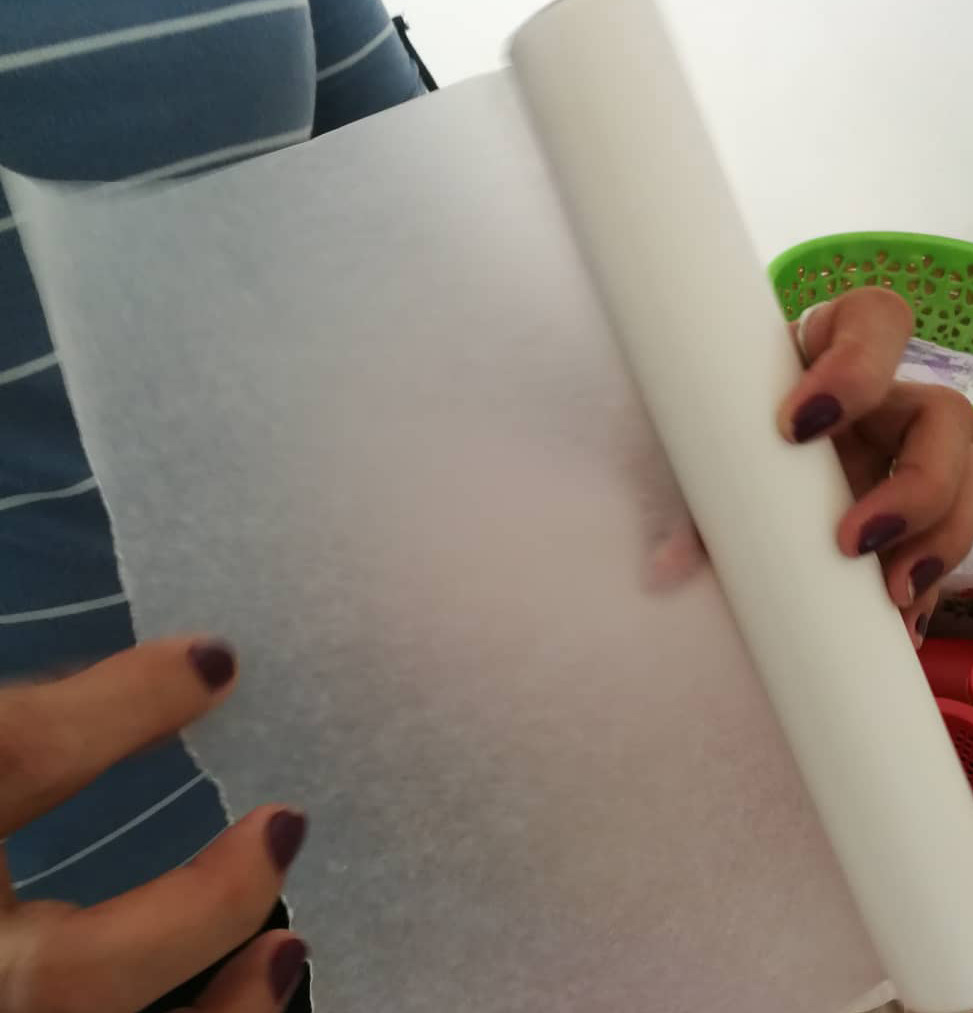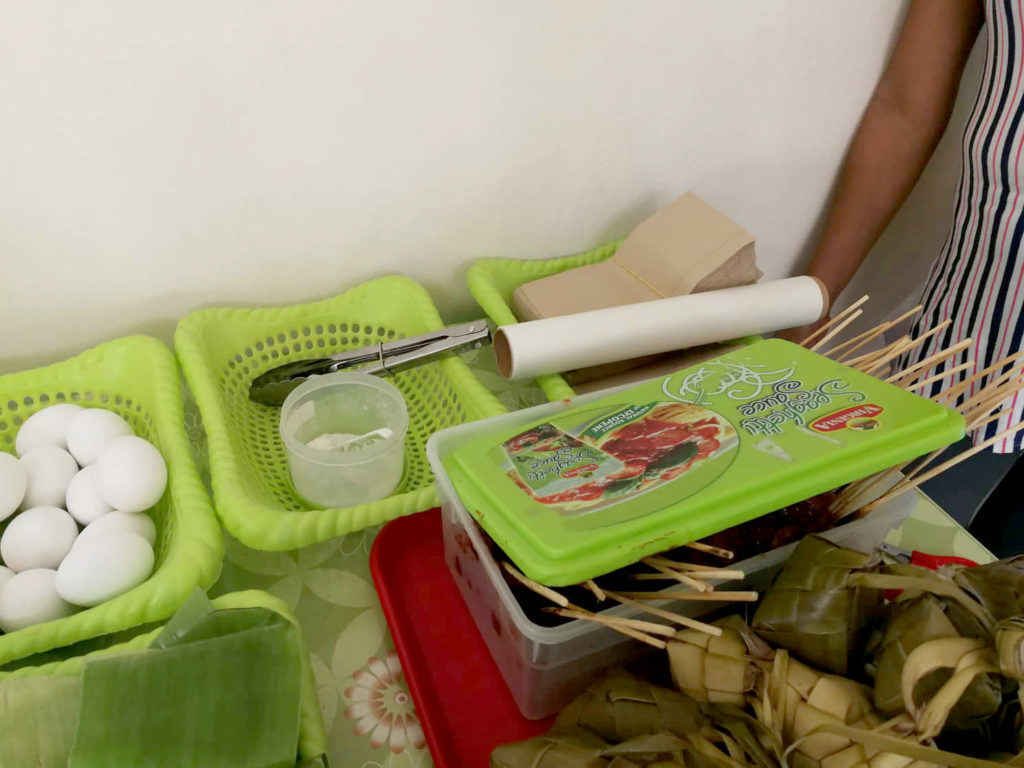Life without plastic at Cebu City Hall

Vendors at City Hall have started using wax paper and banana leaves to wrap the food that they serve and sell after Mayor Tomas Osmeña ordered a ban on the use of plastics and styrofoam products at the City Hall building starting August 1.
CDN PHOTO/Morexette Marie B. Erram and Contributed photos
For more than 20 years, Marissa Candado depended on cellophane and plastic bags to wrap the food which she sold at the Cebu City Hall building.
But that has changed recently after Cebu City Mayor Tomas Osmeña ordered all government offices and employees at City Hall to stop using single-use plastics and styrofoam effective August 1.
“Plastics coupled with poor waste management and littering in the streets, creeks, and riverbanks have clogged drainages and canals which, in turn, substantially contribute to flooding,” said Osmeña in an Executive Order (EO).
“Floodwaters bring about a myriad of health risks and pose a threat to the safety and well-being of residents,” the mayor further said.
When Marissa learned about the EO, she was worried about its impact on her finances.
Marissa, now 52 years old, has been selling snacks such as puto, empanadas, banana cue, and suman near the stairway to the second floor of the City Hall executive building.
“It was my mother who first started selling inside City Hall until she retired, and I took over since it has become a family business,” she told Cebu Daily News.
The mayor gave City Hall vendors and employees about a month from June to train themselves to survive in a plastic-free work environment.
The move which particularly targets City Hall employees and food vendors is a measure carried out by the city government to jumpstart plans of a city-wide ban on single-use plastics such as forks, spoons, cups, bottled water, and plates in the coming years.
But more than the city employees, the vendors are getting the brunt of the ban as they had long relied on plastic bags not only to wrap the food they sold to customers, but also to protect their goods from dust and insects.
Already, City Ordinance 2343 prohibits the use and sale of plastics in malls in Cebu City every Saturday. It was expanded to include Wednesdays.
Amendments to the ordinance would consist of P500 fines for the first offense, P1,000 for the second offense and P1,500 for the third offense or imprisonment of five days or both for violators.
Business establishments caught violating the ordinance will be fined P1,500 for the first offense, P2,000 for the second offense and P5,000 for the third offense or the cancellation of their business permit issued by City Hall.

Snacks and other food being sold or displayed by vendors at the Cebu City Hall are now either covered with wax paper, banana leaves or are placed inside plastic containers. Vendors also use paper bags instead of plastic bags or cellophane.
However, the new EO does not bear any penalties against anyone caught violating the order.
According to Osmeña, appropriate sanctions will be given in the future to give people like Marissa enough time to adjust to the new rule.
Osmeña acknowledged that plastics, especially those that are used only once, clogged waterways and drainage systems in some areas of the city, resulting to knee-deep floods even after only a few minutes of heavy rain.
“I would like to address the issue of plastic. I have announced before that Cebu City will ban the use of plastics in stages. First straw, then bags, and so on,” the mayor said.
For Marissa, selling food wrapped in wax paper, banana leaf or packed in paper bags — instead of plastic — has become more costly.
“Plastic bags usually cost around P9 to P12 per pack. Paper bags are more expensive. For two dozens, I spend around P50. So that’s an additional cost for me,” Marissa explained in Cebuano.
“As a result, there’s a slight decrease in my income. I usually earn around P1,000 to P3,000 a day but since I started buying paper bags, my costs have eaten up on my income,” she added.
The additional costs prompted Marissa to advise her customers, especially the workers at City Hall, to bring their own containers so that she can save on buying paper bags to wrap the food that she sold to them.
“I just hope the penalties will not be imposed soon because we’re still adjusting to the plastic ban,” said Marissa.
Daisy Verallo, who carries a basket of empanadas, cheesesticks, peanuts, and boiled eggs in the legislative building, shared Marissa’s sentiments.
Daisy decided to increase the price of her goods by as much as P1 to even out the cost of buying paper bags which she now uses as wrappers.
“It’s hard to find cheaper alternatives to cellophanes. That’s why I choose paper bags instead,” said Daisy, a 59-year-old grandmother.
According to Daisy, the cost of buying paper bags to wrap her goods is twice as much as the price of plastic.
“We’ll just have to follow the city’s rules,” she said.
“I know that it’s going to be for the betterment of Cebu City. At least,unlike the vendors in other markets, we got to experience first-hand what plastic-ban is like before they will
completely prevent all of us from using plastic,” said Daisy.
Disclaimer: The comments uploaded on this site do not necessarily represent or reflect the views of management and owner of Cebudailynews. We reserve the right to exclude comments that we deem to be inconsistent with our editorial standards.




